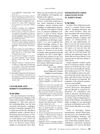 June 2023 in “Journal of Education, Health and Sport”
June 2023 in “Journal of Education, Health and Sport” CBD is effective for certain epilepsy conditions, shows promise for other health issues, but needs more research for safety and effectiveness.
Neurosteroids help regulate oxytocin levels, especially during stress and pregnancy, to protect against premature labor.
 March 2023 in “Scientific Reports”
March 2023 in “Scientific Reports” Using focused ultrasound on the brain can help epilepsy medicine work better in rats.
 January 2023 in “IntechOpen eBooks”
January 2023 in “IntechOpen eBooks” The document concludes that specific methods for making diazine-based drugs can lead to high yields and are important for creating effective treatments for various diseases.
 October 2022 in “Frontiers in Endocrinology”
October 2022 in “Frontiers in Endocrinology” New tools show that in fish, NPY increases feeding and somatostatin decreases it.
 April 2021 in “IntechOpen eBooks”
April 2021 in “IntechOpen eBooks” Androgens, male hormones, affect physical and mental functions, with a decrease leading to health issues like muscle loss, bone disease, and depression, and more research is needed on long-term effects and treatments.
 October 2020 in “Authorea (Authorea)”
October 2020 in “Authorea (Authorea)” Men and women react differently to opioids, with hormones potentially influencing these differences.
January 2020 in “Korean journal of ophthalmology/Korean Journal of Ophthalmology” Minoxidil increases cell layer permeability by reducing tight junction proteins and raising ROS levels.
November 2013 in “Journal of clinical & experimental dermatology research” The follicular unit extraction method for hair transplants is a technique with benefits and drawbacks.
March 2008 in “British Journal of Pharmacology” Enzymes play crucial roles in metabolism, health, and disease management.
February 2023 in “Pharmaceutics” August 2022 in “Metabolic Brain Disease” Ferulic acid may help control menstrual cycle-related epilepsy by affecting female hormones.
January 2016 in “Medicinski Podmladak”  15 citations,
June 2019 in “Experimental Dermatology”
15 citations,
June 2019 in “Experimental Dermatology” Old neuropharmacological drugs might be effective for treating inflammatory skin diseases.
6 citations,
April 2019 in “Advances in Pharmacology and Pharmacy” Mimosa pudica extract may help create new sedative and anti-anxiety drugs.
11 citations,
September 2022 in “World Journal of Advanced Pharmaceutical and Medical Research” Nicotiana tabacum has potential therapeutic uses but also poses toxic risks.
 May 2023 in “GSC Advanced Research and Reviews”
May 2023 in “GSC Advanced Research and Reviews” Eclipta alba (Bhringaraja) has many medicinal uses, including protecting the liver, promoting hair growth, and reducing inflammation.
 5 citations,
April 2002 in “The American Journal of Medicine”
5 citations,
April 2002 in “The American Journal of Medicine” Hair loss can be an early sign of HIV infection.
 228 citations,
September 2012 in “Trends in Neurosciences”
228 citations,
September 2012 in “Trends in Neurosciences” Nerves are crucial for the regeneration of various body parts in many animals.
 127 citations,
June 2008 in “British Journal of Clinical Pharmacology”
127 citations,
June 2008 in “British Journal of Clinical Pharmacology” Low doses of some substances can be beneficial, while high doses can be harmful or toxic.
 101 citations,
January 1997 in “Journal of Investigative Dermatology Symposium Proceedings”
101 citations,
January 1997 in “Journal of Investigative Dermatology Symposium Proceedings” Nerves and chemicals in the body can affect hair growth and loss.
 49 citations,
October 2014 in “International Scholarly Research Notices”
49 citations,
October 2014 in “International Scholarly Research Notices” Eclipta alba has many health benefits and contains compounds with potential for drug development.
 47 citations,
December 2002 in “Journal of Neurochemistry”
47 citations,
December 2002 in “Journal of Neurochemistry” Progesterone boosts alcohol's effect on brain, finasteride counters it.
 42 citations,
September 2018 in “Journal der Deutschen Dermatologischen Gesellschaft”
42 citations,
September 2018 in “Journal der Deutschen Dermatologischen Gesellschaft” Adult female acne requires a comprehensive treatment approach, including medical options and lifestyle changes, with attention to psychological well-being.
 39 citations,
August 2008 in “Growth hormone & IGF research”
39 citations,
August 2008 in “Growth hormone & IGF research” Raspberry ketone may help grow hair and improve skin elasticity.
 37 citations,
April 2002 in “The American Journal of Medicine”
37 citations,
April 2002 in “The American Journal of Medicine” St. John's Wort can cause dangerous high blood pressure if taken with certain foods.
 24 citations,
August 2018 in “Journal of Ayurvedic and herbal medicine”
24 citations,
August 2018 in “Journal of Ayurvedic and herbal medicine” Hibiscus rosa-sinensis may help treat various health issues and promote hair growth, but more research is needed for safety.
 12 citations,
March 2020 in “Journal of Bioactive and Compatible Polymers”
12 citations,
March 2020 in “Journal of Bioactive and Compatible Polymers” Nanoparticles show potential for controlled release of hair loss drugs, improving treatment effectiveness.
 9 citations,
July 2020 in “Experimental Dermatology”
9 citations,
July 2020 in “Experimental Dermatology” Topical L-thyroxine may help with wound healing and hair growth but should be used short-term due to potential risks.
 8 citations,
January 1996 in “Springer eBooks”
8 citations,
January 1996 in “Springer eBooks” Male pattern baldness may be caused by factors like poor blood circulation, scalp tension, stress, and hormonal imbalances, but the exact causes are still unclear.





















